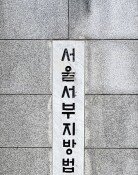[Editorial] Koreas Economy Is Getting Caught Between Chinas, Japans
[Editorial] Koreas Economy Is Getting Caught Between Chinas, Japans
Posted November. 21, 2005 08:40,
Five Japanese semiconductor corporations, including Hitachi and Toshiba, have agreed to jointly produce next-generation semiconductors. They will establish a joint investment company and starting in 2007, they will produce Large Scale Integrated Circuits (LSI) in state of the art facilities.
The reason they are doing this is to overtake the Korean semiconductor industry. The Chinese company Haier has had a lucrative year in Korea by selling low-priced air conditioners and with this momentum, it plans to aggressively sell home appliance products such as refrigerators, televisions, computers, and dishwashers. It plans to do so with exceptionally low prices.
Japan is threatening Korea with the latest technology, while China threatens with cheap prices.
In an era of global competition, there is no way to beat low-priced, quality products. Chinese products not only have a price edge, but they are also improving in quality.
Japanese companies, especially in the high-tech market of semiconductors, are overtly expressing their intention to beat Korea. There are even rumors that they will limit supplying parts to Korea.
In response, Korean companies are waging a full-scale fight against the offensive tactics of China and Japan. Samsung Electronics decided to build the largest semiconductor complex in the world, with 24 production lines and six research lines. It also plans to increase its research personnel by 32 percent. LG Electronics also presented the strategy to become a global company by increasing the number of products that rank first in the world.
Nevertheless, there are limits in winning in global competition with only the efforts of individual corporations. The investment environment of the country should be good so as to improve the competitiveness of individual corporations. If the government and civic groups hold investment back with regulations and intervention, as they are doing now, the competitiveness of corporations can only weaken. While increases in facility investment were stuck at an annual 0.3 percent between 2000 and 2004, Chinas facility investment is growing in double-digit rates. Japan is also greatly increasing its level of facility investment.
At the Busan APEC summit, finished two days ago, heads of state and entrepreneurs put all their efforts to lure investment to their respective countries. It shows that an increase in investment is critical in global competition. If Korea wants to avoid becoming sandwiched between China and Japan, the government should boldly loosen all types of regulations on investment.







